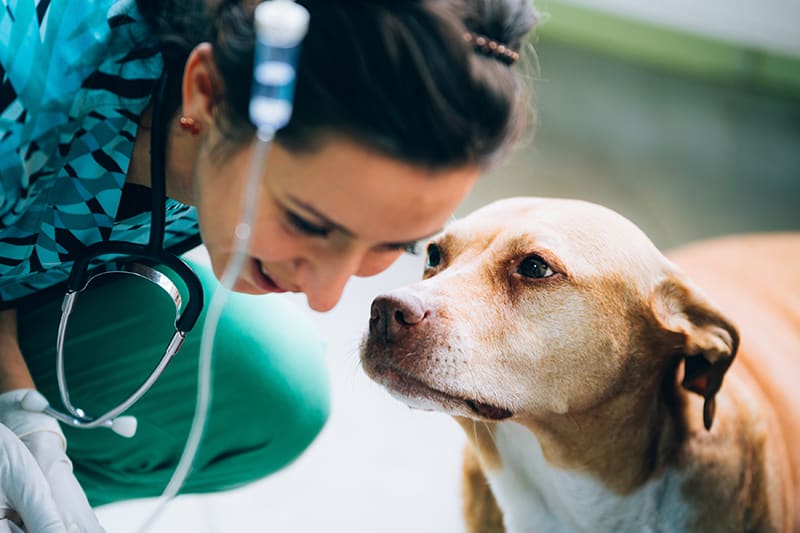Causes of Bladder Infections in Dogs
Dogs of all breeds and ages can suffer from bladder infections but they are most commonly seen in female dogs. These painful infections may be caused by crystals, bacteria, diseases such as diabetes, and even some medications to name a few.
Common Symptoms of Bladder Infection in Dogs
Pain, difficulties urinating, blood in urine, straining to urinate and urinating very small amounts but frequently are all common signs that your dog may be suffering from a bladder infection. Other indications of bladder infections or urinary tract infections (UTIs) include:
- Straining to urinate
- Increased frequency of urination
- Blood in the urine
- Cloudy or strong-smelling urine
- Reduced quantity of urine
- Accidents inside your home
- Whimpering while urinating
- Licking the genital area
- Fever
- Increased thirst
- Lack of energy
If your dog is showing any of the symptoms above it's time to head to your vet. Bladder infections and urinary tract infections are often painful for dogs. That said, when diagnosed and treated early these infections can often be cleared up quickly and easily — so the sooner you can get your pup to the vet the better.
How to Treat Bladder Infection in Dogs
Antibiotics are the number one treatment for bladder infections in dogs. In some cases, your veterinarian may also prescribe anti-inflammatory medications or pain killers depending on the severity and underlying cause of your pet's bladder infection.
While in some cases bladder infections in people will clear up without the need for medical care, this is unlikely to be true for your pup. It's also important to remember that, since our canine companions are unable to tell us how they're feeling it is best to have any symptoms of illness checked out by your vet. Left untreated your dog's bladder infection could become much more severe and lead to complications.
It's also important to note that your dog's bladder infection symptoms could be caused by a more serious underlying condition that needs veterinary care. When it comes to your pet's health it is always best to err on the side of caution and see your vet.
Note: The advice provided in this post is intended for informational purposes and does not constitute medical advice regarding pets. For an accurate diagnosis of your pet's condition, please make an appointment with your vet.
Is your dog showing signs of a bladder infection or UTI? Contact us today to book an appointment for your pooch.
Looking for a vet in Huntersville and Mecklenburg County?
We're always accepting new patients, so contact our veterinary hospital today to book your pet's first appointment.
Related Articles View All
Puppy’s First Vet Visit: Checklist & What to Expect
Set your new puppy on the path to good health by getting the most out of each vet visit. Here is what you can expect from your puppy's first vet visit, along with a checklist of things to take and questions to ask your vet.
Kitten's First Vet Visit: What to Expect
So you have just brought home a little bundle of joy. Congratulations! But make sure you're scheduling your first veterinary appointment, as well as routine exams going forward. To help you prepare, our Huntersville vets discuss what to expect at your kitten's first appointment.
How often should I take my dog to the vet?
Regular veterinary care including checkups, parasite prevention, and vaccinations are the key to keeping your dog healthy throughout their lifetime. But, how often should you take your dog to the vet, and how can you save money? Read on to find out.
Bladder Stones in Dogs
Broken jaws are an alarmingly common, and painful, injury in our canine companions. In today's post, you will learn some of the causes of a broken jaw in dogs, how they can be repaired, and a few tips on caring for your dog as their jaw heals.

